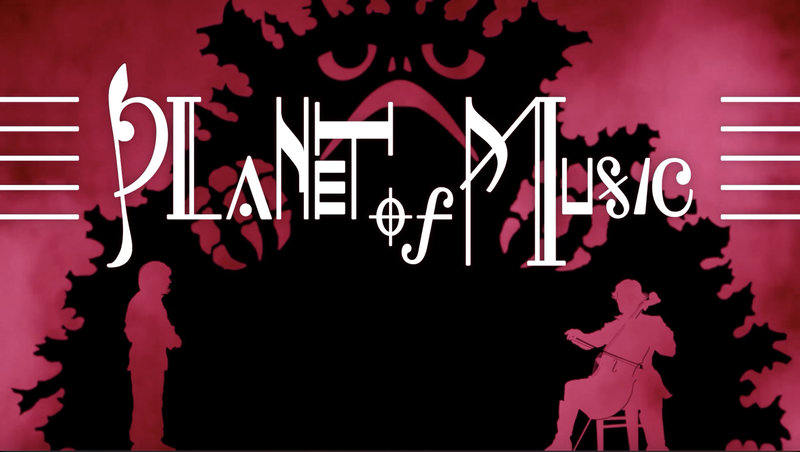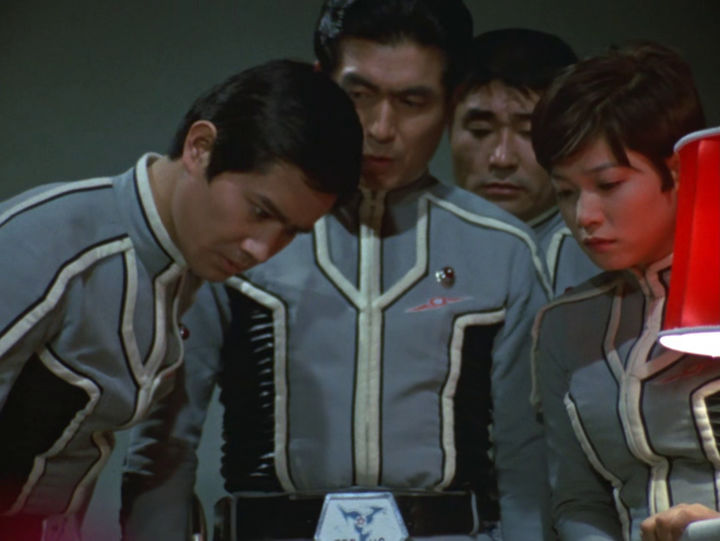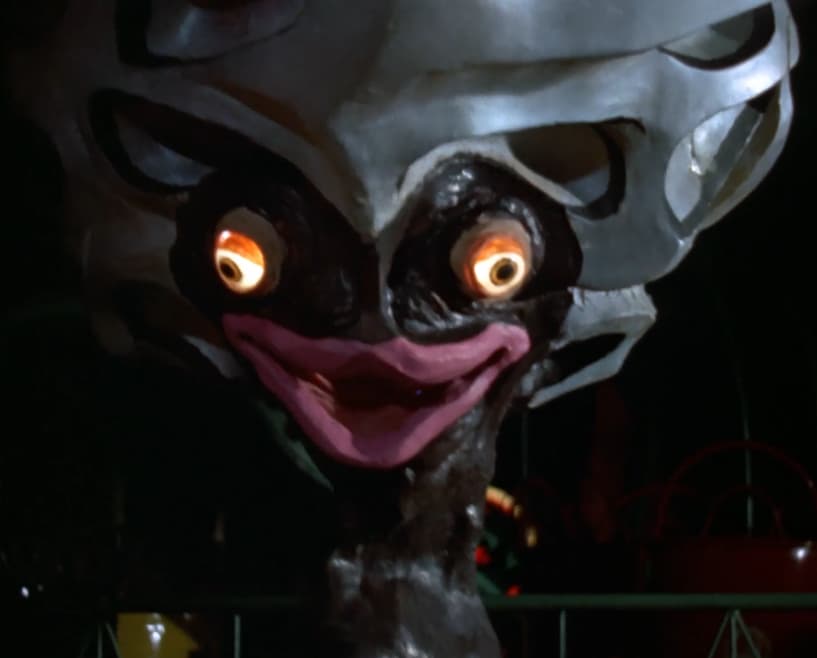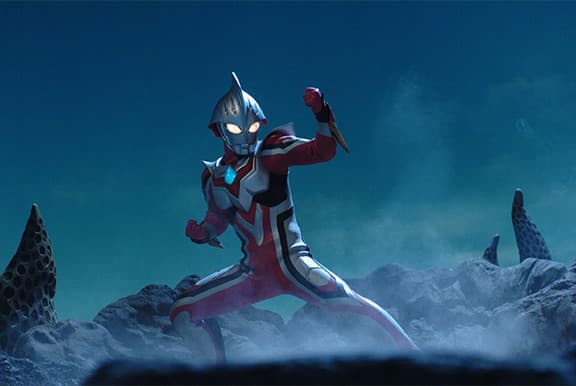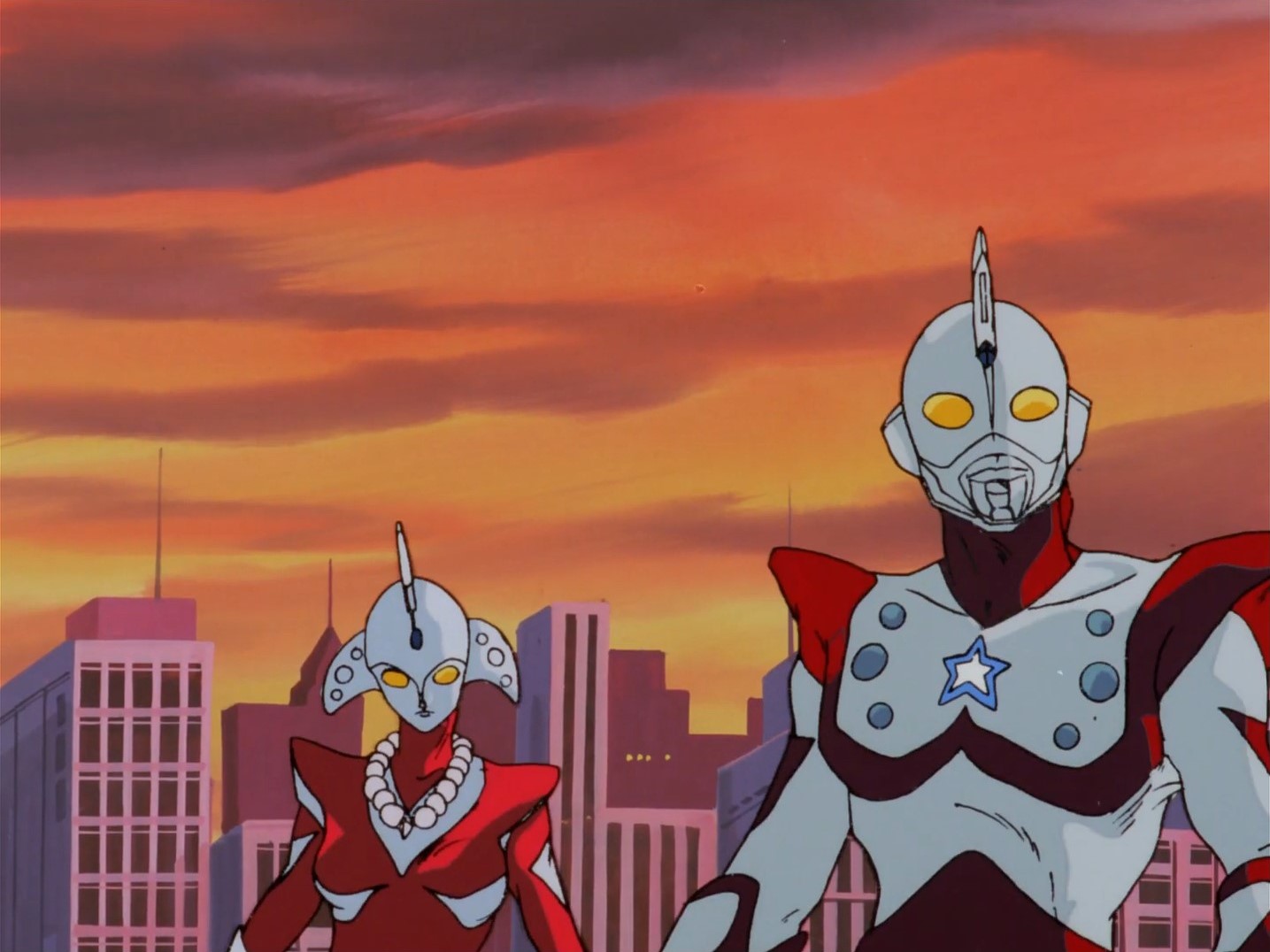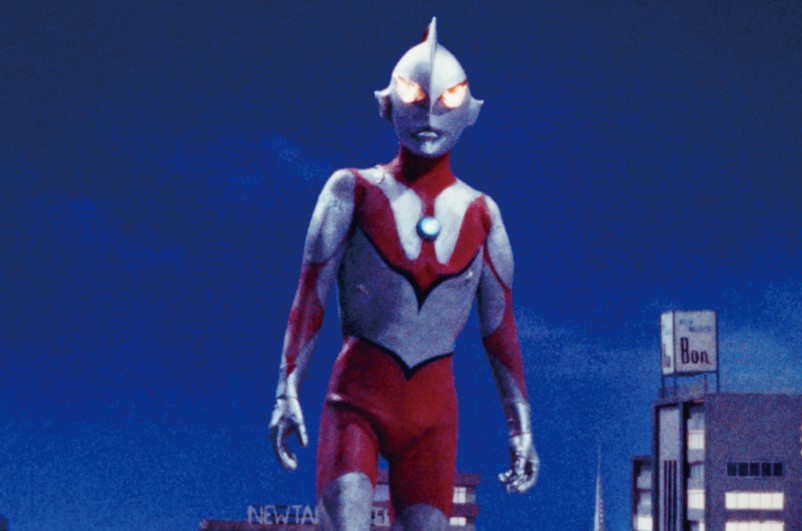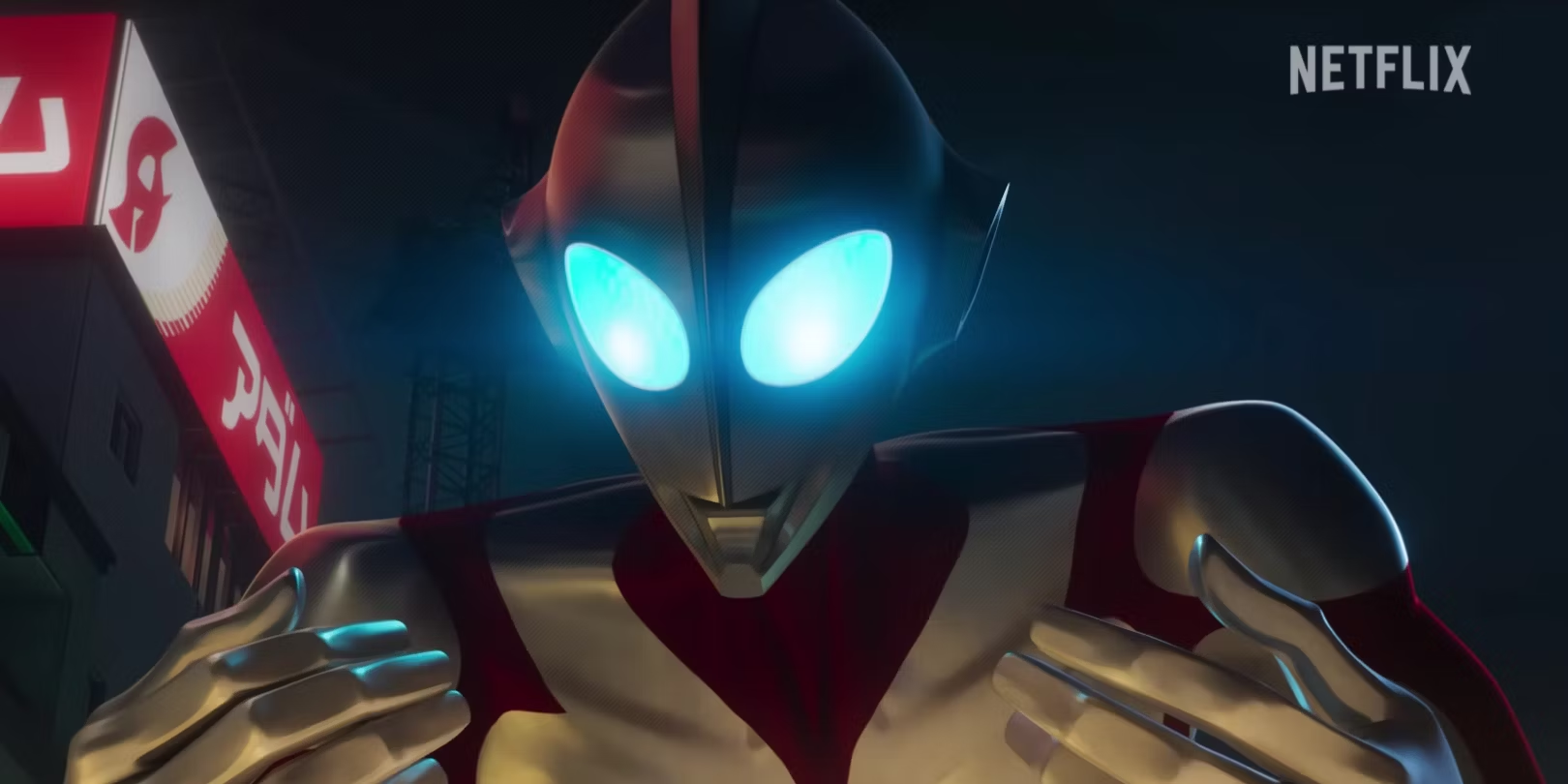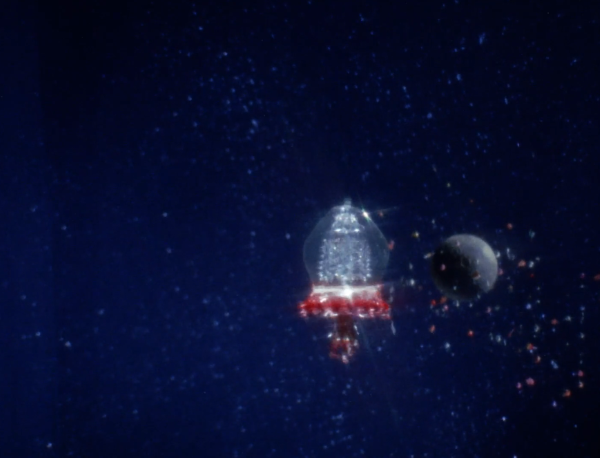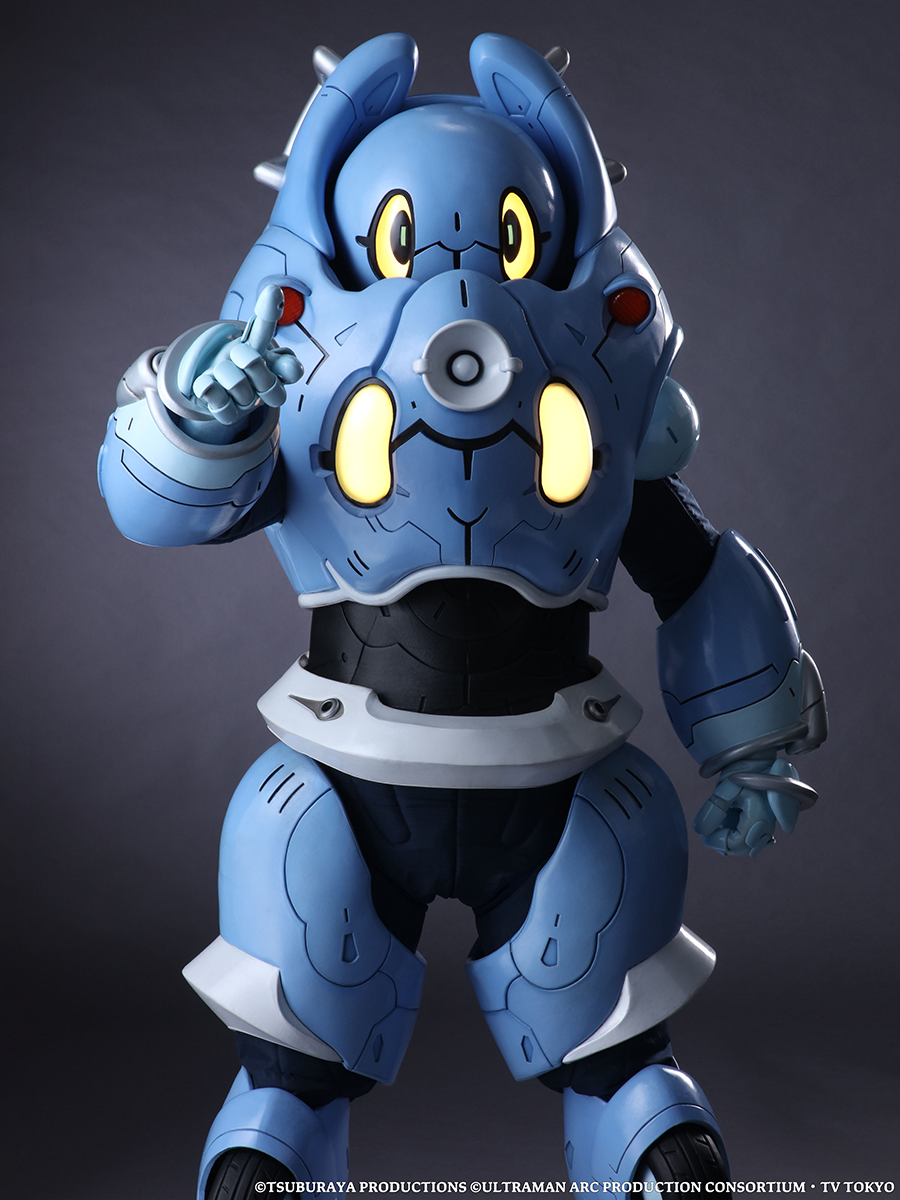To all you Ultraman Connection Faithful out there, how do you feel about music?
Personally, I have a long history with it. Alongside the Ultraman series, classical music was a major part of my development growing up, and I still have a soft spot for performance of all kinds, especially orchestra music.
The same is clearly true for Hideki Togi, the guest star for this week’s episode of Ultraman Blazar, “Planet of Music.” In many ways, Togi is the star of the episode as a whole, even though the focus character is Anri — and judging by his performance, it isn’t hard to see why at all. Togi is a gagaku musician, a type of classical music designed primarily for the Japanese court and high society. Gagaku is an exceptionally old style of music, with the earliest examples of the style dating back to the 6th century, and is still highly respected to this day. With that in mind, it makes perfect sense that someone like Togi would be tapped for an episode celebrating the venerable ancestor of the Ultraman Series as a whole, the series that predates Ultraman himself: Ultra Q.
In a series like Blazar, which has up to now prided itself on exceptionally novel storytelling within the greater Ultraman Series, featuring so many brand-new kaiju and such an unconventionally skilled hero like Blazar, to hear that the show is doing a straightforward, reference-laden tribute to Ultra Q may seem a little strange. It was certainly strange to me. And yet, upon actually watching the episode — in both the original Japanese and the English dub — It was difficult for me to imagine a series better for this kind of story. It’s unconventional from a composition standpoint, highly moody in its storytelling, and in many ways is endlessly fascinating in its strangeness.
The show starts us ten years deep into the memories of resident black-belt and beloved SKaRD crew member Anri Minami, when she was still a student. Her meeting with a talented quartet of musicians, Ensemble Q, especially their cellist and bandleader Tsukushi, leads to an invitation in the present day, to a concert by that same band — one she cannot know will be the group’s last, and one tied to the arrival of a Kaiju that has lived in the minds of Ultraman fans for almost 60 years — the Robot Kaiju, Garamon.

The battle with Garamon, and its accompanying parallel story taking place on a stage and performed with instruments, is the core of this episode, and from the first appearance of the Robot Kaiju, you are immediately plunged into a very specific headspace. Not simply because of Garamon itself, though its movements and sound effects straight out of its appearance in Ultra Q certainly help. No, what immediately locked my attention in place and refused to let go started from that first moment of discordant playing.
I knew that discord.
That was Ultra Q.

For almost 15 minutes straight, with no commercials, out of a 22-minute episode, we are treated to a genuinely stunning suite adapted and expanded from the original soundtrack for Ultra Q, performed by an ensemble led by Togi. Starting with the original theme song originally composed by Kunio Miyauchi, the man also responsible for the Ultraman soundtrack, before diving into an original piece developed in the style of Ultra Q, “Tilsonite Genesis,” the episode is more than just a story — it is a showcase, a masterclass in the power that music has to evoke emotion and memory in those who hear it.
That thesis on the power of music is also core to the narrative itself. As the battle with Garamon reaches its peak, Anri, having realized the source of the threat, accepts the invitation to the concert and finds Tsukushi and his band, and learns the truth. These performers are not human — in a surprise twist that was not spoiled even for me, Ensemble Q revealed to be a team of Cicada Humans, the very first aliens to have ever appeared in the Ultraman Series. When I tell you I was stunned, I mean it. It made sense, as the Cicada Human’s first appearance was its attempt to invade and conquer Earth using Garamon, but it was deeply unexpected to see them returning to their original role and aesthetic.

That reveal begets a beautiful flashback sequence showing the Cicada Humans’ arrival to Earth, 60 years before the present day, with intent to pillage it before Garamon would come to destroy it. Every detail was spot-on, as expected from Tsuburaya Productions — the transparent suit of the Cicada Humans, the Esperiser Control Device that summoned Garamon — even the black-and-white color of the entire scene. Everything is a perfect recreation of the insidious plans of the original Cicada Humans. Until the quartet hears something new, and then it isn’t.
The moment when the aliens approach the gramophone playing the music, and their world shifts, slowly but surely, from black and white to vibrant color, brought a tear to my eye. There is a deep sweetness to it, far greater than I was expecting. Maybe I’m sappy because of my own history as a musician, but there was a sincerity in the wonderment of the four aliens experiencing music for the first time — perhaps because the entirety of the quartet is composed of real musicians. Togi’s Tsukushi, as mentioned, plays the cello, while Togi’s real-life son, Norichika Togi, portrays the pianist, Kuroiwa. The group’s bassist, Higurashi, is portrayed by Hiroaki Tsutsumi, and the violinist, Niize, is played by Kon Shirosu.
While I’m not entirely sure if the quartet actually recorded the music used in the episode, the benefit of using real, working musicians for roles like this was integral to sustaining the believability of the performance — for a while, I really thought Ensemble Q was playing the music live during the episode. I’m honestly still not sure they didn’t. The line increasingly blurs when Anri attempts to stop the performance, forcing three of the four to leap off the stage and keep her away, leaving Tsukushi’s cello as the sole ribbon of music running through the episode as Blazar desperately struggles against the seemingly indestructible Garamon.
Then Anri, tears for the alien she thought was her friend in her eyes, shoots once, and the music stops.
I won’t spoil the specifics of our characters’ fates, but I feel the need to highlight some performances in this moment. Obviously, as the main character for this episode, Konomi Naito’s Anri is utterly stellar, easily my favorite performance of hers so far. Naito is obviously very talented, but the sweeping joys and tragedies of this episode allow her to express a genuinely impressive emotional range — one that is portrayed primarily through body language, as this episode is surprisingly light on dialogue in favor of its music.

When it comes to speaking, however, I need to give a special shout-out to Madeleine Morris, Anri’s dub actress, who gave me actual chills in this week’s performance. Morris’s talent has been showcased throughout her over 60 different dub roles in the past, many of which I’ve personally enjoyed prior to watching Blazar, but there’s no better way to say this — Morris’s Anri just hits different this week, with her practically screaming her lines by the end in a deep sadness that genuinely took my breath away. Such a performance is likely helped by her other role as the adaptive scriptwriter for Blazar — I imagine adapting your own lines can help get the best out of a performance.
The other standout character in this episode is Togi, who in addition to his history in music and composition, has been an actor in productions going back at least as far as 1998. He brings a solemn kindness to the role of Tsukushi. Each word feels chosen carefully, and why wouldn’t it? Tsukushi has the weight of the destruction of not only the Earth itself, but the music that gave him a new reason to live, on his soul.
The man portrays an alien who has resigned himself to his fate, all the while begging through his music — “Someone, please stop me.” In his final monologue, alone on that stage, there is a deep wistfulness, tinged with quavering notes of pain and admiration, that declares that humanity stands alone among innumerable peoples in one beautiful respect — “In this universe, there are countless lifeforms that make sound. But for you humans, sound is — music is something you can genuinely enjoy.”

Which brings me to one of the most unexpected pleasures of the episode, Tsukushi’s dub performance, portrayed by Mike McFarland. McFarland is a deeply venerated voice actor at this point, having portrayed countless characters in dozens of dubs since 1997. Many comical, some angry, all excellent. His voice is both highly recognizable and chameleonic at the same time. And yet… There is something truly special about McFarland’s Tsukushi. It is that same monologue mentioned above that I have been brought to tears several times while rewatching the episode for this review. As masterful as his performance is at the character’s height, it is at his nadir that McFarland is able to really find something in this role.
In the original Ultra Q, the fate of any Cicada Human who failed to conquer their target planet was death. It is a fact of life for their species. Tsukushi, as the leader of this team, was forced to choose between two deaths — that of him and his men, or of the beauty that had enchanted their hearts. There is a deep grief in Tsukushi’s situation, a weight that has steadily crushed the man for 60 years. As Tsukushi’s role ends alongside the episode, it is McFarland’s performance that so eloquently portrays that weight lifting, his despair fading away with his time on this planet. His voice breaks, ever so slightly, as he expresses his genuine gratitude that humanity gets to continue to live, and to create music, before the curtain falls on him — literally, as the episode ends, just as Ultra Q once did, with a curtain coming down to conclude this tale of unbalance.
I could continue to talk about this episode for days — I will continue to do so, on my own time, with the people I share this wonderful fandom with. This review is woefully inadequate to contain my feelings on the story — but then again, if I made it much longer, it’d be far too long for all of you Ultraman Connection faithful out there.
Before I go, however, there is one person who has been surprisingly undermentioned in this big, long review — and that’s our lead itself, Gento Hiruma! His role is quite minor in this episode, save for the beginning of the story. However, that beginning moment is certainly something, featuring a bizarre new twist in Gento’s relationship with Blazar. That dynamic will continue to expand into next week’s episode, but for now, we can only theorize…

Until that episode, make sure to stick close to Ultraman Connection. Our usual writer will return for Episode 10 “Parent and Child,” so make sure to be there!
